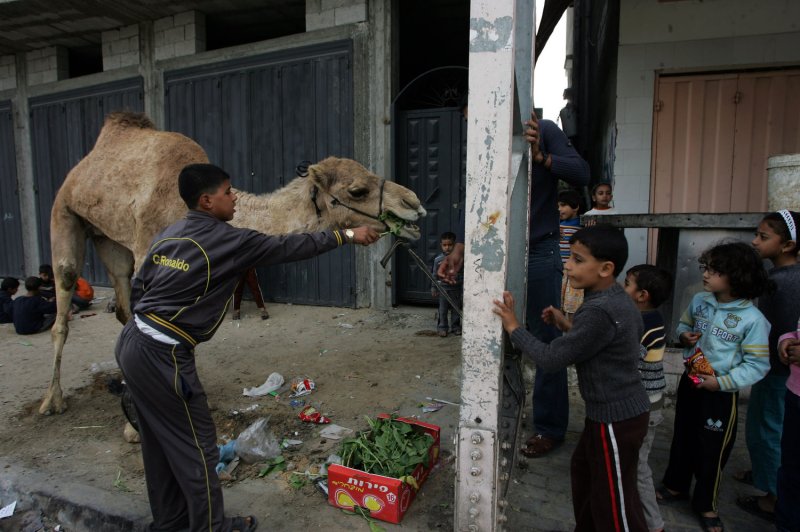Camel-to-human contact has been targeted as the main culprit in the spread of the MERS virus. UPI/Ismael Mohamad |
License Photo
RIYADH, Saudi Arabia, April 22 (UPI) -- An increase in reported cases of Middle East Respiratory Syndrome, or MERS, has health officials worried that the coronavirus is evolving -- becoming better able to spread from human to human, as opposed to only from animal to human.
Since MERS was first identified in September 2012, 244 cases have been reported in Saudi Arabia. Of those 244, 50 of them have been reported in the last week.
"It took us over a year to get the first hundred cases of this viral infection," Dr. Michael Osterholm, who directs the Center for Infectious Disease Research and Policy at the University of Minnesota, told NPR blog Shots. "Now in just the last two weeks, we've had a hundred cases."
The uptick alone isn't the main signal that the disease might be changing.
Previously, researchers have noticed spikes in MERS cases in areas immediately following camel races, suggesting human contact with the humped mammal is the primary way in which the virus spreads. Clusters of MERS cases have also been seen among camel herders. But more recently, MERS cases have been concentrated among healthcare workers, suggesting human-to-human transmission.
But until more eyes are able to analyze the new MERS numbers, it's not clear what significance any of the news has for those outside Saudi Arabia and neighboring countries.
As TIME reported, officials at the World Health Organization have yet to comment on the latest rise in MERS cases. That's because -- according to some researchers -- Saudi Arabia has been slow to share information with international health officials.
"It’s frustrating," Ian Mackay, an associate professor at the Australian Infectious Diseases Research Institute at the University of Queensland, told TIME. “With the H1N1 virus, China provided almost too much information," Mackay said. “But we’re seeing the complete opposite extreme in Saudi Arabia, where you can’t even get the sex of the patient in some cases."
"It's time for the world to wake up and demand that the Middle East do the kind of job that we need done to stop this transmission [of MERS]," Osterholm said, "and to protect the rest of the world."















